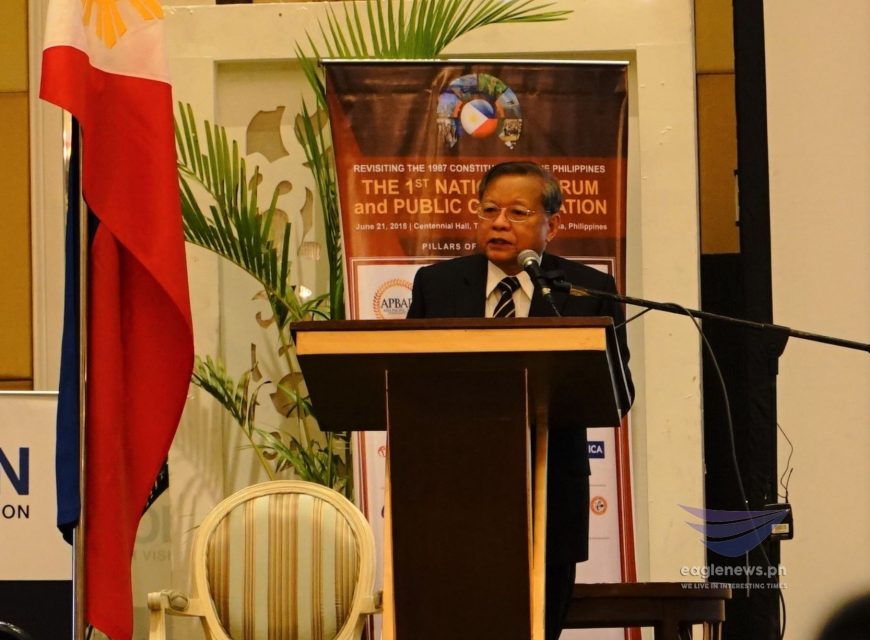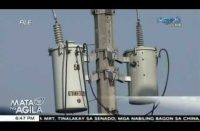
(Eagle News) — There will be four high courts with specialized functions and with “specialist” justices, under the proposed new Constitution to be submitted by the Constitutional Committee reviewing the 1987 Constitution headed by former Supreme Court Chief Justice Reynato Puno.
“We propose radical changes in the judiciary,” Puno said on Thursday, June 21, in his speech during the “1st National Forum and Public Consultation” revisiting the 1987 Constitution held at the Manila Hotel.
“There will be four high courts in the judiciary: a Supreme Court, a Constitutional Court, an Administrative Court, and an Electoral Court,” he said.
Puno explained that the establishment of four high courts will be desirable and beneficial to the country, as this will “speed disposition of cases” under a proposed federal-presidential system of government.
The proposal will also “transform” high courts, “from courts composed of justices who are generalists to justices who are specialists, hopefully to get more quality decision,” the former Chief Justice said.
Puno identified the functions of these four high courts under the proposed Constitution during the forum in Manila before delegates and experts from various fields, including the judiciary, education, politics, economics, agriculture, social justice, monopolies, stock market, media, and women and children.
-Functions of 4 high courts –
“Basically, the Supreme Court will decide all cases involving branches and agencies within the federal government,” he explained.
This will also include “conflicts between the federal government and the federated region, and conflicts between and among the federated region.”
“The Constitutional Court, on the other hand, will decide cases involving the constitutionality of the laws enacted by the federal legislature, as well as the laws enacted by the regional assemblies.
This will also “resolve the constitutionality of the acts of the president and the acts of government in the federated region.”
The third high court, the Administrative Court, will “decide all cases coming from the Constitutional Commission and all administrative and quasi-judicial bodies.”
Lastly, the “Electoral Court will decide all election cases involving the President, the Vice President, the senators and the members of the House of Representatives,” Puno said.
Whereas before, the Philippine president alone appoints all justices from a list submitted by the Judicial and Bar Council, under the proposed Constitution as drafted by the Constitutional Commission, the justices will be “appointed with the participation of all three branches of government.”
“So one-third of them will be appointed by the President, one-third will be appointed by the Commission on Appointment of Congress, and one-third by the different high courts,” Puno noted.
“Then, hopefully we can get a better mix of justices in all these high courts,” he added.
The draft of the proposed Constitution will be submitted to President Rodrigo Duterte for his review “this week or early next week” before this will be presented to Congress which will then meet as a “constituent assembly” to revise the present 1987 Constitution.
(Eagle News Service)







